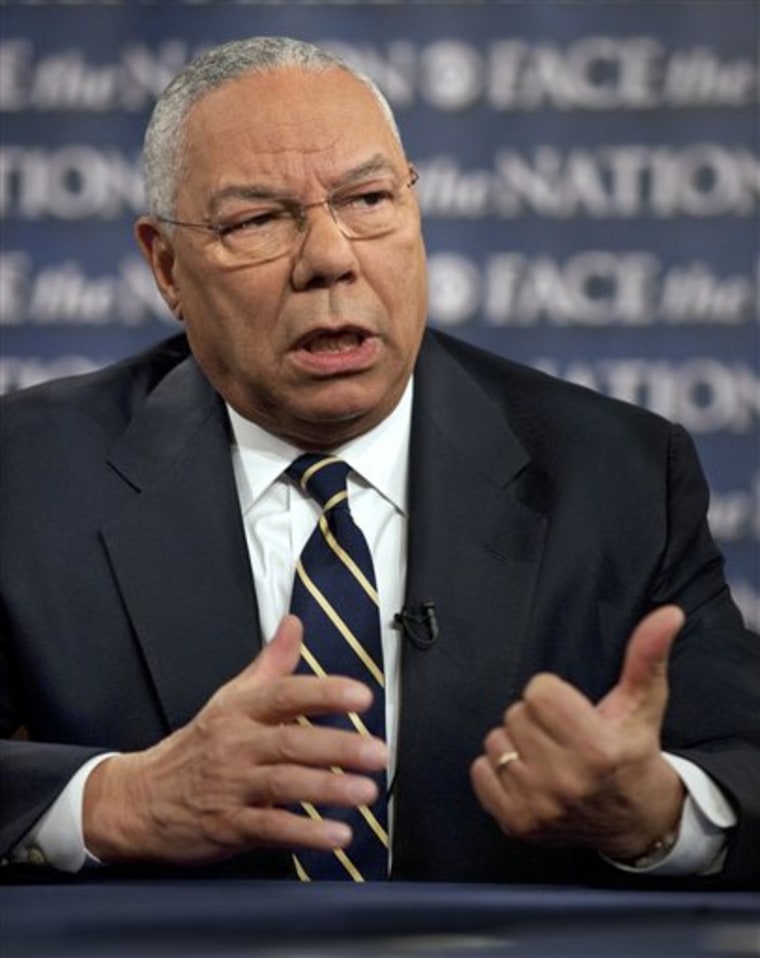Former Secretary of State Colin Powell on Sunday dismissed as "cheap shots" the criticism leveled at him and others in Vice President Dick Cheney's memoir.
It was the latest volley in a clash that stretches back to their first years in the George W. Bush administration.
Powell went so far as to say that if Cheney's staff and others in Bush's White House had been as forthcoming as the State Department in the case involving CIA operative Valerie Plame, the indictment and conviction of Cheney's friend and former chief of staff never would have happened.
Powell made the remarks Sunday on CBS' "Face the Nation" ahead of the Tuesday release of Cheney's book, "In My Time: A Personal and Political Memoir." Cheney said in an earlier NBC interview that the book would cause "heads to explode" in Washington, a description Powell said he expected from a supermarket tabloid and not a former vice president.
"My head isn't exploding. I haven't noticed any other heads exploding in Washington," Powell said. "From what I've read in the newspapers and seen on television it's essentially a rehash of events of seven or eight years ago."
Cheney and Powell had numerous disagreements in the administration, particularly over policy toward Iraq and the run-up to the 2003 invasion by U.S.-led forces. Still, Powell termed "nonsense" Cheney's description of how Powell went outside with his criticism of administration policies.
Powell also suggested that Cheney wrongly took credit for Powell's resignation from the State Department in 2004; Powell said he had always planned to serve only four years. He labeled as "almost condescending" the tone of Cheney's criticism of Condoleezza Rice, who succeeded him as secretary of state.
"Mr. Cheney has had a long and distinguished career and I hope in his book that's what he will focus on, not these cheap shots that he's taking at me and other members of the administration who served to the best of our ability for President Bush," Powell said.
On the Plame matter, Powell said Cheney tries to "lay it all off" on Powell and Richard Armitage, the deputy secretary of state under Powell.
Cheney's former chief of staff, I. Lewis "Scooter" Libby, was convicted of perjury, obstruction and lying to the FBI during its investigation into who leaked to the news media that Plame, the wife of a former ambassador critical of the Bush administration, worked for the CIA.
Powell said that when Armitage realized he was the anonymous source cited by syndicated columnist Robert Novak in an article that revealed Plame's CIA connection, Armitage contacted Powell and they spoke to the Justice Department and the FBI for the probe ordered by Bush.
"If the White House and the operatives in the White House — on Mr. Cheney's staff and elsewhere in the White House — had been as forthcoming with the FBI as Mr. Armitage was, this problem would not have reached the dimensions that it reached," Powell said.
Instead, Powell said, the FBI continued for two more months trying to find out what had happened in the White House and that a special counsel ended up conducting a two-year probe of what he called a "mess."
